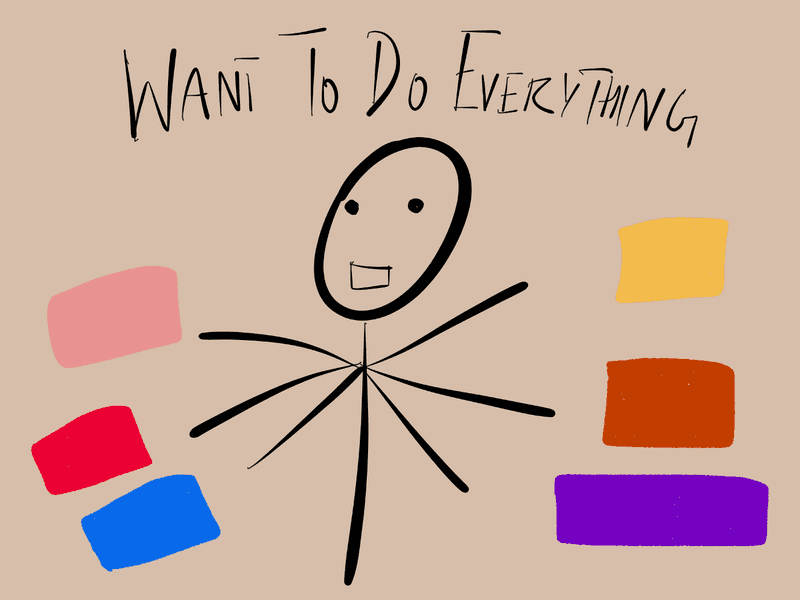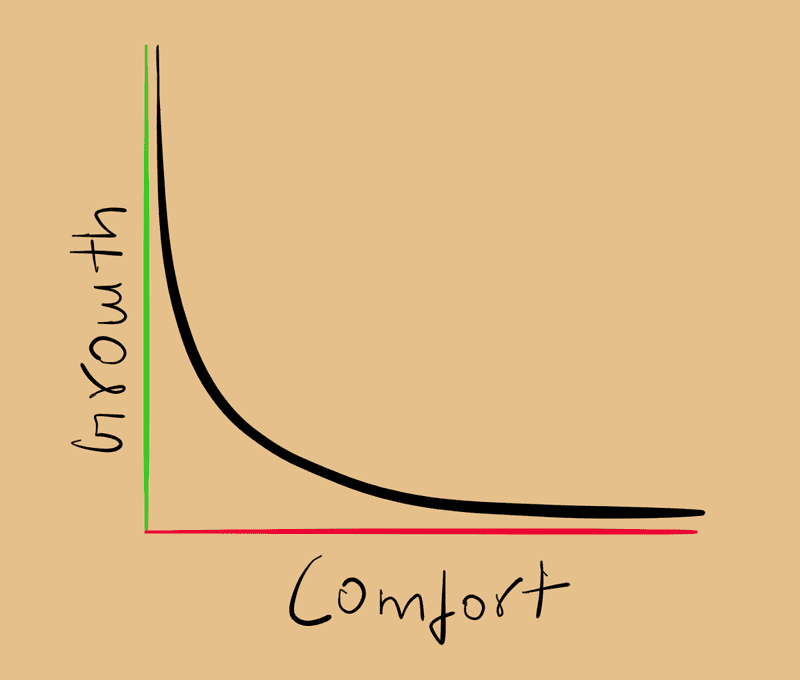7 Things I Learned At IBM
October 14, 2017
I hit a milestone recently, I completed my first 3 months at IBM, experiencing life as a full time employee. It’s been an eventful journey, to say the least. This is an especially big deal for me because I never imagined myself working at a tech company with such a rich history of innovation and business dominance. I am super-fortunate to be working in a field where the surface is only beginning to get scratched. As part of the Watson Internet of Things (IoT) team, I get to see and work on a lot of cool projects and initiatives that I never knew were even possible! To sum up, my job makes the little futurist in me very happy.
Ok, so why am I telling you all this?
Well, working in my team is very much like working in a startup. We don’t work 9–5 and we move fast. All of this translates into a lot of work, but it also equates to learning…on steroids. In this post, I want to share some of those steroid infused insights that help me everyday.
1. Take yourself seriously
As an intern, when you join the workplace and are surrounded by people with years and years of experience, it can be intimidating. When I started going for meetings, I didn’t know if I should speak up when I had an opinion. I felt out of place. “Hmm, I don’t know, these guys seem pretty serious and know their stuff…” and I’d stay shut. Until this one meeting where we started discussing how we cater to the new millennial market. I took the opportunity to offer my insight and understand and people actually liked it!
That changed things for me. I started offering more insight whenever relevant and it turns out that people really do appreciate input if you are adding value to the conversation. I learned that if you always view yourself as an “intern”, that’s what everyone else will do as well. But the minute you start looking at yourself as a contributor to the team and business, your mentality will make you more confident and allow you to think and speak more effectively.
2. Take responsibility
I cannot stress how much I have learned just by taking responsibility for as many things as I can. When you put your name against something — you are accountable for it and you own it. This sense of ownership will drive you to complete the task and complete it well, because you know that your identity is now linked to how well you do this.
Why is personalised online shopping so effective? Because people feel like they own the product before they even buy it. Sense of identity and attachment are powerful drivers and if used right, it can help you do good work.
Obviously, I do not encourage overburdening yourself here. Do not say yes to everything to a point where you are unable to do anything effectively.
But if you consciously make an effort to always stay slightly uncomfortable, you will grow, a lot.
3. Ask
Okay, this may seem like a really silly and obvious one, but just hear me out. I don’t know if you guys feel this way but when I get given a task — I want to show right away that I got it and I can do it. When I feel like I didn’t get all of it, I just try my best to fill in the blanks in my head and get to it. Simply because, “I don’t want to seem stupid”.
Over my time at IBM, I have come to realise that thought does more harm than good. I have come close to doing things really wrong just because I didn’t want to seem stupid and ask for repetition. I have learned that clarification is a really valuable tool, especially when you are working with remote teams like I do. Meanings may get lost in communication and get misinterpreted when they cross borders and different organisational levels. It is important to ensure that things are understood clearly by everyone.
The responsibility of this lies not just on you but also on everyone in the team to be understanding and approachable for questions. It does not help anyone to be impatient when someone is asking for something to be repeated.
ALMOST HALF WAY THERE NOW.
I’m going to reward your patience with a cute dog gif.

Bonus gif at the end if you stay loyal like doggo
4. Go above and beyond
I have come to learn that, if you want to make a dent, you cannot just tick off tasks from your to-do list. That is the bare minimum. Everyone does that. What sets YOU apart? The answer will vary for everyone but there is a common underlying principle — proactiveness. When you talk to people who are switched on and ambitious, you know it. It is impossible to miss. I have been fortunate enough to meet a few people like this at IBM and I try my best to learn from them.
Learning is a very big part of this. If you want to set yourself apart, you need to have insights and ideas that no one else does and that comes from constantly teaching yourself. When you learn a plethora of things, you begin to see from different perspectives and you start to see patterns and connections where there weren’t any.
Beyond learning, I believe your mentality always has to be one of giving value and actively seeking opportunities. When people & projects genuinely benefit from your involvement, it opens the door for many more unique opportunities.
5. Titles are just titles
When I first started at IBM, I noticed one thing — titles are EVERYWHERE!
I understand that happens for a reason and I am not going to jump into a critique. But for a 19 year old university student, it can be slightly daunting. What do you say to the Director? What do you not say to the VP? How should I behave? What should I do????
As time went by, I came to take these titles less seriously. By that I don’t mean I started disrespecting it. It just means that I became title agnostic. It can be easy to fear status and to even by intimidated by it, but I remind myself that they are also human, just like me.
Authority does not equate to superiority, and I think it is very important for people in hierarchy driven organisations to remember that.
6. Network
Networking, the most over-used advice, ever. Everyone throws it around like they know what it means. I believe we are doing networking wrong. It is not about how many people you can have superficial conversations with, in a short time-span at some industry event.
Nope, nope, NOPE.
Networking is about connection. It is about understanding what people do, sharing experiences. We should not be entering conversations with a gamified mindset of talking to as many people as possible. Networking is long term. It is an accumulation of genuine conversations you have with people around you and learning from it.
Sure, you never know who will come handy when, but that should never be the goal. There is no shortcut for genuine curiosity and the people you talk to will see that.
FINALLY, on to the last one…
7. Care
Leading on my from my point about genuinely giving a shit. I have found that the best performing people I have come across…care. They love the business, they love it more than anything. They are consumed by it and want to see it flourish. These are the people I want to surround myself with and aspire to be like.
When you work for an incentive, there is only a certain threshold of performance you will attain before you realise “I’m not compensated enough for this”. I will be honest, as an intern, I feel that way at times too. However, I love what I do and I can see the impact it is having or going to have.
It is paramount to look at the bigger picture and work towards an outcome that you can clearly understand and make goals against. Now, look, I know that as interns we can’t always pick the roles that we want in the companies we like. I completely understand that but I still believe if your role does not give you that satisfaction where you can see an outcome, look for opportunities outside of it. I work with many fellow interns who are hungry for other opportunities and are always involved in side projects besides their main responsibilities. I love that. I love that so much!
Find a way to align your goals with your tasks, truly and deeply care about it and you will have the time of your life.
Thanks a lot for reading, I really hope you picked up a few nuggets to help you in your work life.
Now as promised, I am going to drop the bonus gif and leave in style.

Karan








